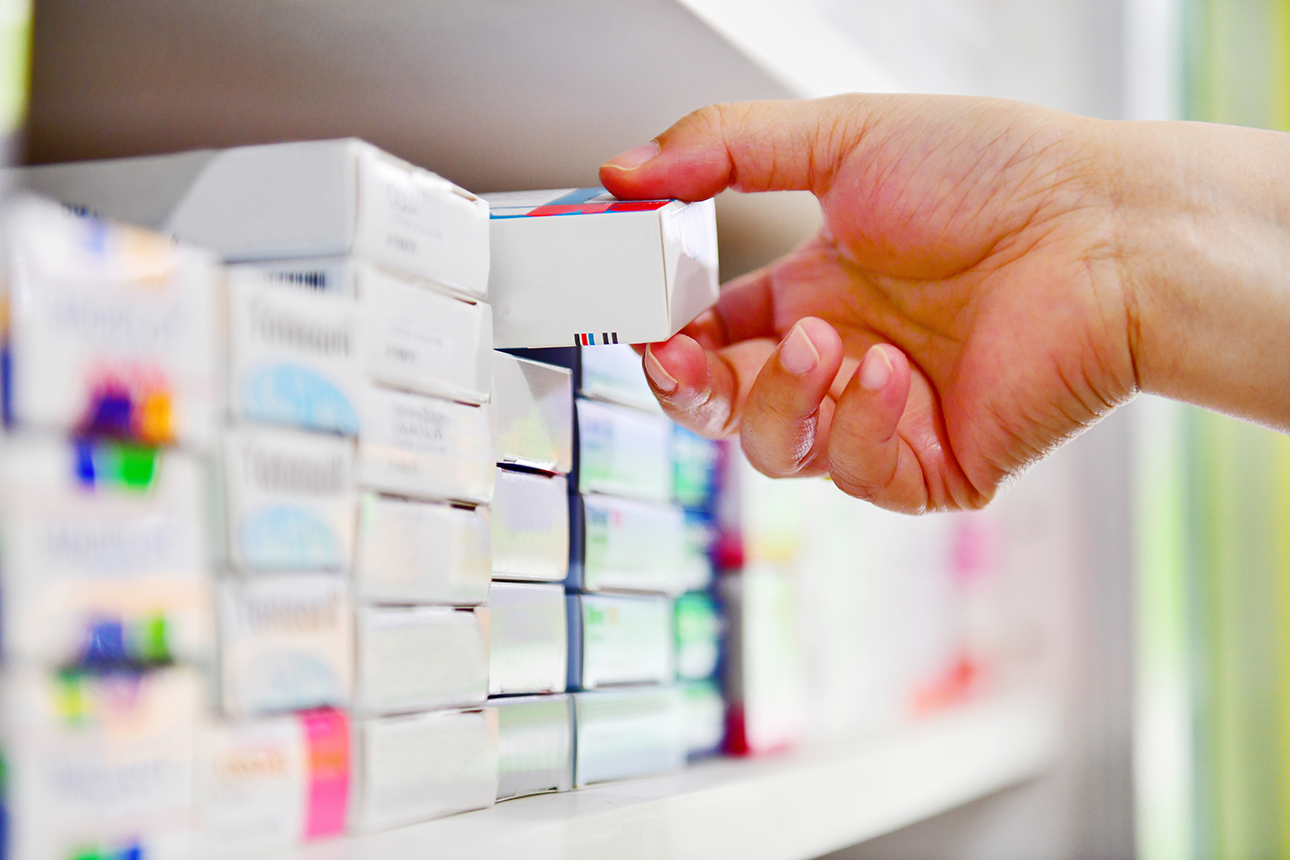
By Belinda Castles
Researcher | Kairangahau
Runny nose, watery red eyes, itchy throat, and non-stop sneezing. If you’re one of the many New Zealanders who suffer from hay fever, you’ll be on the lookout for an effective remedy this spring. We talk to the experts about the treatment options.
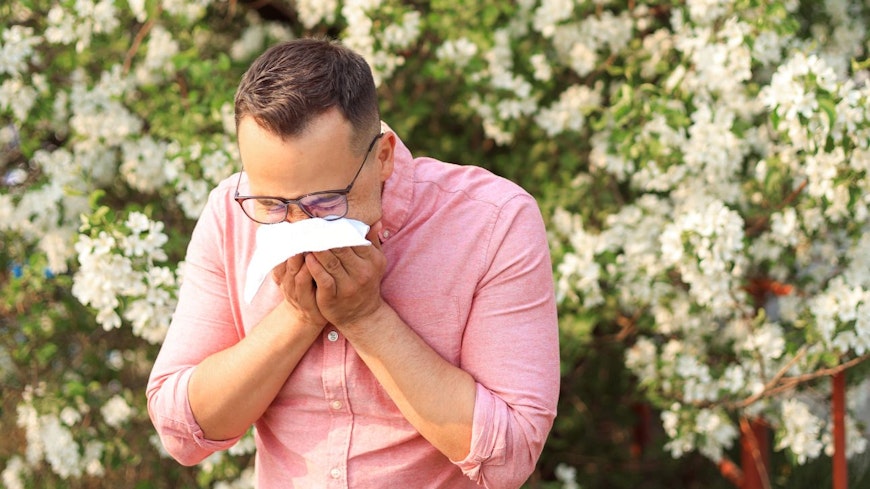
While the warmer weather puts a smile on many faces, for seasonal hay fever sufferers like my son Charlie, this time of year doesn’t put a spring in his step. An active teenager, his happy place is outside – hitting a golf ball and playing cricket – but the high pollen count that comes with spring can make his days a misery with sore watery eyes and a runny nose.
There’s a range of treatments for managing hay fever – from antihistamines to natural supplements – and it’s easy to spend big. But should you? We asked immunologist and allergy specialist Dr Andrew Baker, Allergy NZ CEO Mark Dixon and a GP specialising in allergies Dr Anna Gilmore about the different treatment options.
What is hay fever?
Hay fever (also known as allergic rhinitis) is inflammation or swelling of the lining of your nose, eyes, throat and sinuses due to an allergy. When cells in these areas make contact with the allergen, they release histamine, which causes symptoms such as itching in the back of the throat, sneezing, a blocked or runny nose, and itchy watery eyes.
Hay fever symptoms are similar to other conditions, such as the common cold, so you may need to see your doctor to get a diagnosis. If the cause isn’t clear, your doctor may perform some tests, such as a skin-prick test to find out what you’re allergic to.
Seasonal allergic rhinitis tends to occur in spring and summer, due to allergy to pollen from grass, weeds and trees. Perennial allergic rhinitis is when symptoms occur at any time of the year, often triggered by dust mites, animal dander or mould spores.
Options for managing hay fever
Minimise contact with the allergen
Mark Dixon said that if it’s possible to avoid or minimise contact with the allergen, this is the simplest solution, although it’s not always practical.
“While it might be straightforward to avoid dander from pets, complete avoidance of pollens may be impossible. However, there are still things you can do to minimise pollen allergens and make life easier for yourself.”
Stay indoors and keep windows closed as much as possible during the pollen season, particularly in the mornings and on windy days. If you’re in the car, keep the windows closed and air conditioning on recycled air.
Stay away from high pollen areas, such as parks, golf courses and farms where grass and weeds aren’t regularly mown.
When outside, wear wraparound sunglasses to protect your eyes. When you get home shower and change your clothes and use saline rinse.
Remove allergenic plants from your garden. These are often imported species. New Zealand natives are usually okay, as are brightly coloured flowers. The Allergy NZ Pollen Calendar has information about when different plants and trees produce pollen.
Seek advice on medications
Whatever medication you choose, there are basic safety precautions to follow. If you’re taking any other medicines, check with your doctor or pharmacist before taking hay fever remedies.
While some hay fever remedies are available over the counter, Dr Baker said if you can’t get relief from these, see your GP to get an accurate diagnosis. Your GP may also refer you to an immunologist or GP allergist.
“Not all symptoms that people think are hay fever (or an allergy) actually are. With a confirmed allergy, a regular proactive treatment plan or antihistamines or steroid nasal sprays might be better than treating reactively when symptoms occur.”
Antihistamines
Antihistamines work by counteracting the effect of the chemical histamine, produced when the immune system responds to an allergen.
Antihistamines contain various active ingredients, and Dr Baker says their effectiveness can differ from one person to the next.
“My advice is to try one of the funded ones first (cetirizine or loratadine) because in the long-term, if these work for you, it will save a lot of money. For most people, these antihistamines are also non-sedating so won’t make you tired.”
Generic medicines are another option to consider. These have the same active ingredients in the same quantities as the brands, but at a fraction of the price.
Corticosteroid (anti-inflammatory) nasal sprays
Mainly used as a preventer – once or twice a day, for weeks or months at a time – corticosteroid nasal sprays can reduce inflammation of your nasal lining, so the allergen isn’t as easily absorbed. Sprays may take a few weeks to work.
Nasal decongestant sprays
Decongestants can help reduce swelling of the blood vessels and open the airways. Dr Baker said it’s best to avoid nasal decongestant sprays. Although these sprays can help initially, the risk of “rebound congestion”, with your blocked nose returning once you stop using the product, outweighs any short-term benefit.
Saline nasal drops or rinses
Saline helps thin the mucus, doesn’t cause rebound congestion, and is safe for children and babies. Saline products from the pharmacy have the benefit of being the right strength and having packaging that makes them easier to use.
Eye drops
If your eyes are particularly affected, medicated or non-medicated eye drops may soothe them.
Consider immunotherapy
Immunotherapy involves desensitising the immune system by administering small doses of an allergen. Dr Baker said anybody whose hay fever symptoms affect their quality of life could consider the treatment.
“It can be delivered in two ways. The first is via a monthly injection into the skin during allergy season for 3 to 5 years. The other daily method uses a solution or tablet that dissolves under the tongue for several minutes before swallowing. This oral dose, also taken during allergy season, must be continued for 3 to 5 years.”
Dr Baker said both methods are safe and effective, although not guaranteed, and their effect usually lasts for years after the treatment.
Immunotherapy doesn’t come cheap, though. A course of injection immunology costs approximately $700 for 1 year’s treatment for one allergen, and approximately $900 for up to three allergens in one injection. This doesn’t include the clinic costs for giving the injections. Oral immunotherapy costs about $260 per 3 months per allergen.
If you have medical insurance, check with your provider if immunotherapy is included in your policy.
Buy an air purifier and a vacuum cleaner with a HEPA filter
Hay fever sufferers may benefit from an air purifier in the house. Air purifiers suck air into the unit and across a filter to remove any particles, including those that can trigger a reaction.
If you buy an air purifier, make sure it has a HEPA filter, which traps very small particles.
Yet, however good an air purifier is at removing dust and pollen from the air, there’s always more that settles on the furniture and the floor. Dusting, mopping and vacuuming will still be necessary jobs!
Choose a vacuum cleaner with a HEPA filter, too (European manufacturers sometimes call them S-class). HEPA filters will clog up over time and should be replaced or washed about once a year.
What about alternative remedies?
A range of natural remedies claim to relieve hay fever symptoms, but Mark Dixon said Allergy NZ actively discourages its members from using products whose claims can’t be substantiated by accredited medical journals or publications.
Many of these products fall under the lax dietary supplements regulations. Their claims are not pre-vetted, and their manufacturers don’t need approval to sell them. Dietary supplements can’t claim to treat or prevent a condition, but companies get around this by using vague language such as “may assist” or “may help”.
We asked Dr Anna Gilmour about some of the natural products we found.
Seasonal Sensitivity Stickers, $75 for 24 patches
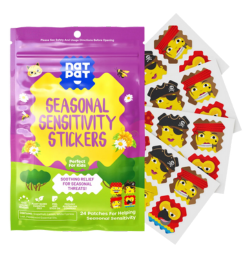
The Natural Patch Co. markets these patches as a safer alternative to other allergy-fighting options. The patches stick onto clothing close to your head and supposedly work by scent “triggering receptors in the nose, which then sends messages from the nervous system to the immune system to promote an immune response”.
The website claims each patch is “scientifically tested and formulated”. We asked the company to provide evidence of testing, but it did not respond to our request.
Dr Gilmour says usually people with significant allergies find scents and fumes will irritate their nose more due to the congestion caused by the allergy.
Homeopathic nasal sprays
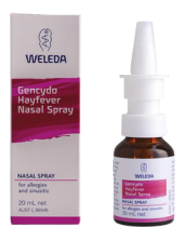
Weleda Gencydo Nasal Spray claims to “support the nasal passages during exposure to seasonal allergens, such as grasses and pollens”. Similarly, Naturo Pharm Sinumed Relief Spray “supports clear breathing by keeping the nasal passages and throat clear”.
But evidence for homeopathic products is thin on the ground. The UK’s National Health Service and the US National Centre for Complementary and Integrative Health both state there’s no good-quality evidence that homeopathy is effective as a treatment for any health condition.
Dr Gilmour says perhaps the biggest benefit of these sprays and drops would be to flush allergens from the nose after exposure in a similar way to how saline rinses would work. This is usually most beneficial in the mornings for dust mites and night for pollen.
Probiotic supplements
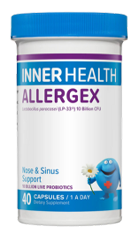
Inner Health Allergex provides “nose and sinus support” and contains the probiotic Lactobacillus paracasei.
A 2021 systematic review of 28 studies looked at the effect and safety of probiotics on allergic rhinitis. It concluded that, despite some positive outcomes from taking probiotics, the evidence is weak.
Dr Gilmour says there may be a link between allergies and gut microflora. But this is probably just one of the many factors determining the development of allergies. More research using specific probiotic strains and consistent outcome measures are needed.

Can you boost your immunity with fortified food or dietary supplements?
We checked out a range of products making immunity claims to see whether they stack up.
